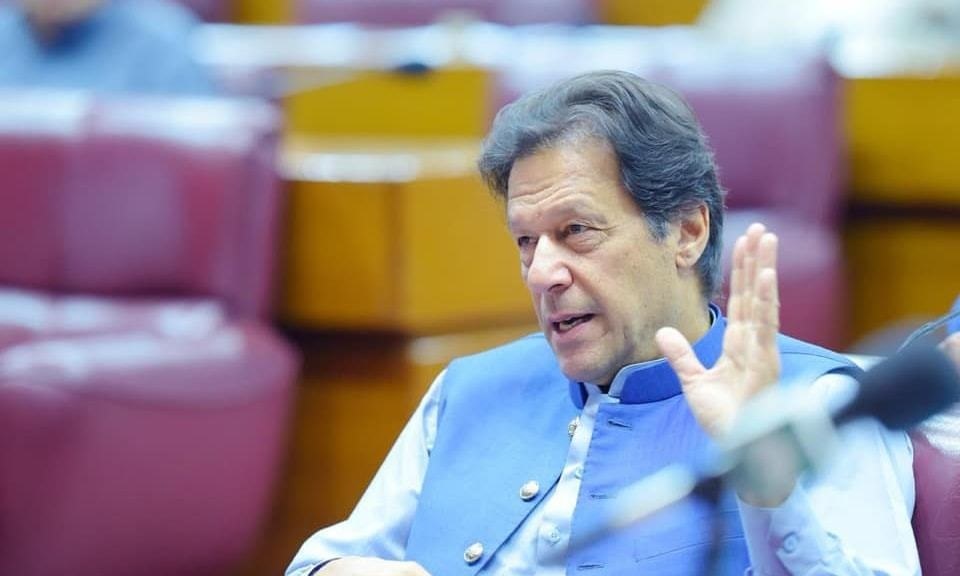KARACHI: ‘From Attire to Desire’, an online conference organised by Uks Research Centre here on Saturday had several women journalists, writers and academics of the country share their views on the issue of women’s dress code and whether it is the real reason or motive for rape.
Senior journalist Nasim Zehra said that blaming the dress code for something as heinous as rape weakens the victim. “It puts the blame on the victim, and empowers the perpetrator,” she said. “Suddenly, the focus moves from the perpetrator to the victim, her character and how she conducts herself and how she deserves what happens to her. And it is all linked to what she wears, making pardah a safety mechanism. It makes rape kosher. It diverts blame from the crime,” she believed.
Mehmal Sarfraz said that the hosts of several news channels picked up on what had been said about this by the prime minister to remind people that rape was not about lust or what one wore, but power. “But he has linked lust with everything under the sun. What was said was not that different from what the CCPO Lahore had said after the Motorway rape.”
‘It puts the blame on the victim, and empowers the perpetrator’
Prof Dr Sadia Mahmood, who teaches at the University of Karachi, spoke from her students’ perspective. “There are more than 70 per cent female students in my university and many of them wear the hijab. Some wear it because they use public transport for commuting. One day, I saw one of my students and didn’t even recognise her without her hijab. She explained that she only dons the hijab while using public transport and that day when she was not all covered up she had been dropped to the university by her father,” the professor said. “So there is insecurity among girls and they feel secure by wearing the abaya or hijab.”
Writer and novelist Bina Shah said that she was disturbed by the prime minister’s statement and was on social media for days to counter his narrative. “I was on social media as the mainstream media fell short on defending women. Our media has many women and if they don’t challenge this misogynist thinking then who else will?” Bina said.
“The media can analyse the prime minister’s statement. Someone should be pushing for an interview where they can sit up and clarify what he was really trying to say for once. These can be teachable moments for a big part of our population,” she said.
Adeela Akmal, a young journalist, pointed out that the media is a reflection of society but the news media is a separate entity. “We like to put the blame on women even though our media is putting an effort to do otherwise, not everyone reads the newspapers or watches the news. They watch content where these wrong narratives are aired such as television plays and serials,” she said.
Senior journalist Afia Salam shared a personal incident. “Just three days ago, I saw an old man pass by, who then turned and ordered me to cover my head. Here, I have to say that our prime minister cannot understand complex narratives. He fell off the track when talking about child rape and harassment and started talking about women and what they wear or how they carry themselves in public. There is a need to throw the statistics back in his face. Parliament and the parliamentary committees should also challenge him about this,” she said.
Farieha Aziz, another young media person, said that she found the prime minister’s statement “a combination of ignorance and arrogance. Even the courts say that the perpetrator is the one you are to focus on. It even recognises that sex workers are also raped. And here we have our country’s premier pointing a finger at women and their dress codes,” she said.
Young journalist Munizae Jahangir, also spoke about the misogynist mentality and the prime minister. “There was an article, which he wrote in the 1990s, that my mother [late Asma Jahangir] responded to. His views were clear from that article. So what he said now is no surprise for me,” she said.
“How did our newsrooms react to his statement? Well, men were uncomfortable with the conversation. We needed to follow that news. We couldn’t. Why weren’t the women standing outside the national assembly? she regretted. “Our women have not had the response that they should have. Even a story of rape in newsrooms is considered a side story or something that can only be tackled by female journalists. But it is not just a women issue as statistics tell us that boys are also raped.”
Journalist Lubna Jerar said that female journalists, especially female news anchors and show hosts who have been there since Ziaul Haq’s time, should speak up and motivate and empower others.
Earlier, the director of Uks Research Centre explained that rape and dress code are two different things. “It doesn’t matter if women are dressed in a particular way, or not dressed in a particular way. We will have to be very vocal about this in order to deal with the misogynist mindset,” she said. “Let’s talk about that mindset and how women and girls live under the burden of self-defence because of it. We need to change that mindset because women in hijab are also raped, children are raped, males are raped, transgenders are raped, even dead bodies are dug out.”
Published in Dawn, April 19th, 2021












































